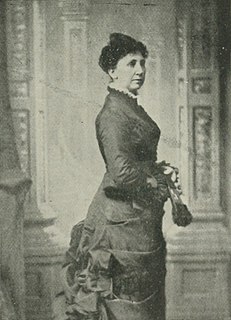A Quote by Nilakanta Sri Ram
He is the wise man who has by perfect living gained the instinct of rightness by which he guides himself, whether in thought or action, who has found that centre of balance which is always over his point of contact with circumstances. He is the man whom Nature pours the riches of all her instincts.
Related Quotes
I believe that the unity of man as opposed to other living things derives from the fact that man is the conscious life of himself. Man is conscious of himself, of his future, which is
death, of his smallness, of his impotence; he is aware of others as others; man is in nature, subject to its laws even if he transcends it with his thought.
Man is man because he chanced to develop intelligence instead of instinct; otherwise he would to this day have remained among the anthropoid apes. He has turned away from nature, become unnatural, as it were, disliked the earth upon which he found himself, and changed the face of it somewhat to his liking.
One of man's important mistakes, one which must be remembered, is his illusion in regard to his I. Man such as we know him, the 'man-machine,' the man who cannot 'do,' and with whom and through whom everything 'happens,' cannot have a permanent and single I. His I changes as quickly as his thoughts, feelings and moods, and he makes a profound mistake in considering himself always one and the same person; in reality he is always a different person, not the one he was a moment ago.
Nature attains perfection, but man never does. There is a perfect ant, a perfect bee, but man is perpetually unfinished. He is both an unfinished animal and an unfinished man. It is this incurable unfinishedness which sets man apart from other living things. For, in the attempt to finish himself, man becomes a creator. Moreover, the incurable unfinishedness keeps man perpetually immature, perpetually capable of learning and growing.
What has here happened is that the instinct of cruelty, which has turned inwards, has become self-torture, and all man's animal instincts have been reinterpreted as guilt towards God. Every Nay man utters to his nature, to his real being, he flings out as a Yea, an affirmation of reality applied to God's sanctity
Man alone, during his brief existence on this earth, is free to examine, to know, to criticize, and to create. In this freedom lies his superiority over the forces that pervade his outward life. He is that unique organism in terms of matter and energy, space and time, which is urged to conscious purpose. Reason is his characteristic and indistinguishing principle. But man is only man -- and free -- when he considers himself as a total being in whom the unmediated whole of feeling and thought is not severed and who impugns any form of atomization as artificial, mischievous, and predatory.
Always man needs woman for his friend. He needs her clearer vision, her subtler insight, her softer thought, her winged soul, her pure and tender heart. Always woman needs man to be her friend. She needs the vigor of his purpose, the ardor of his will, his calmer judgment, his braver force of action, his reverence and his devotion.
Nature does nothing in vain, and in the use of means to her goals she is not prodigal. Her giving to man reason and the freedom of the will which depends upon it is clear indication of her purpose. Man accordingly was not to be guided by instinct, not nurtured and instructed with ready-made knowledge; rather, he should bring forth everything out of his own resources.
The prevailing attitude towards nature is that form of heresy which denies substance and, in doing so, denies the rightfulness of creation. We have said - to the point of repletion, perhaps - that man is not to take his patterns from nature; but neither is he to waste himself in seeking to change her face.































